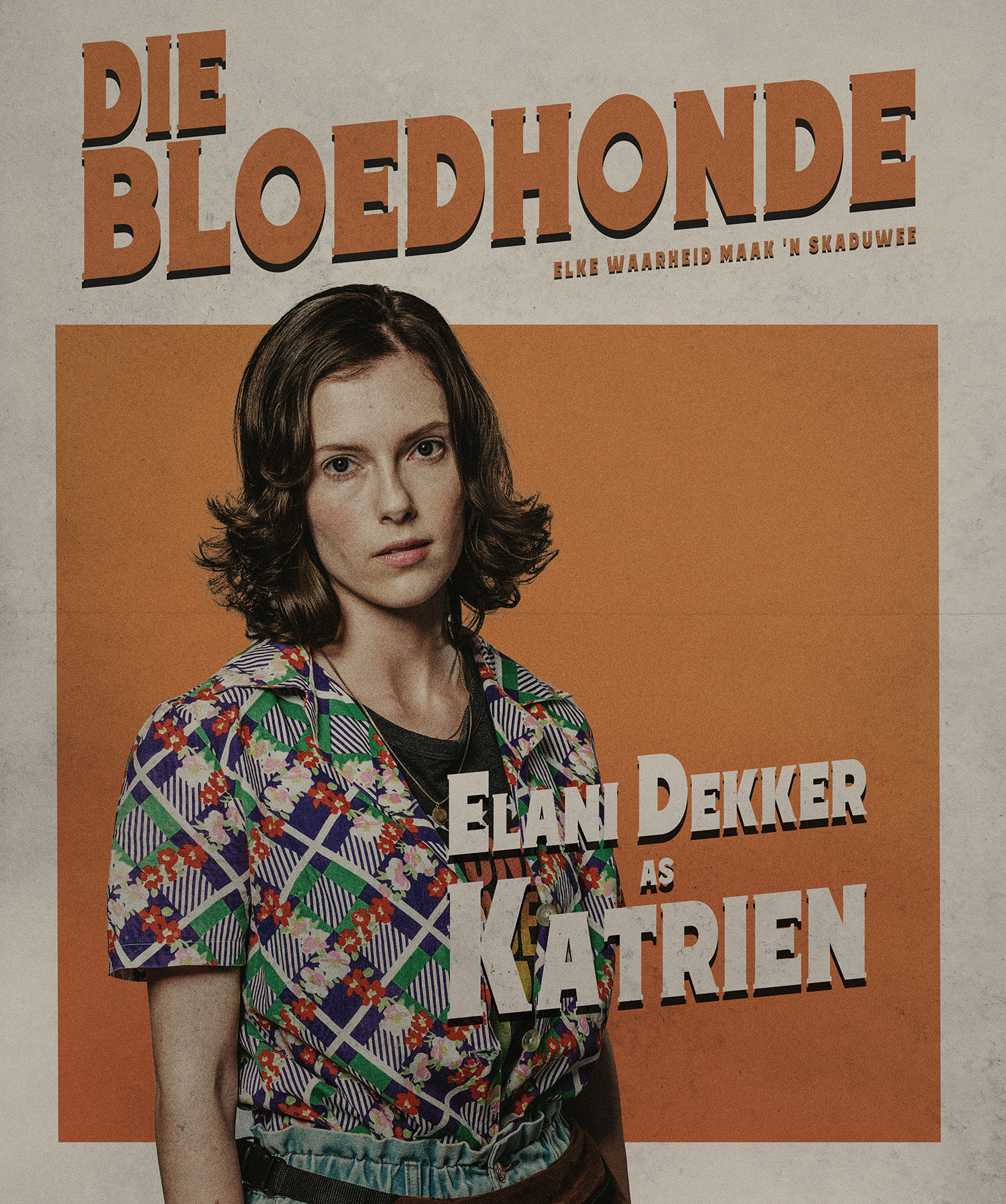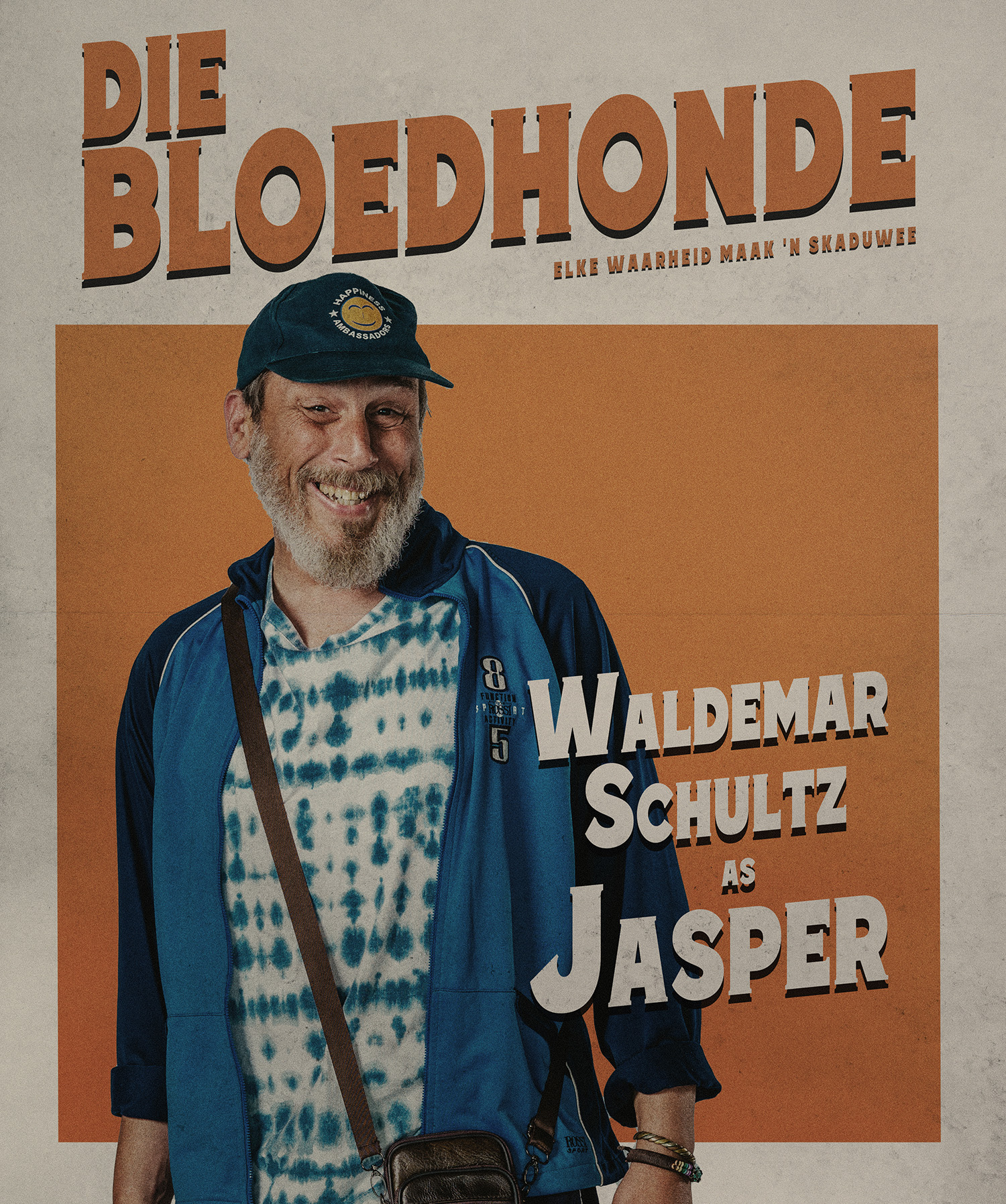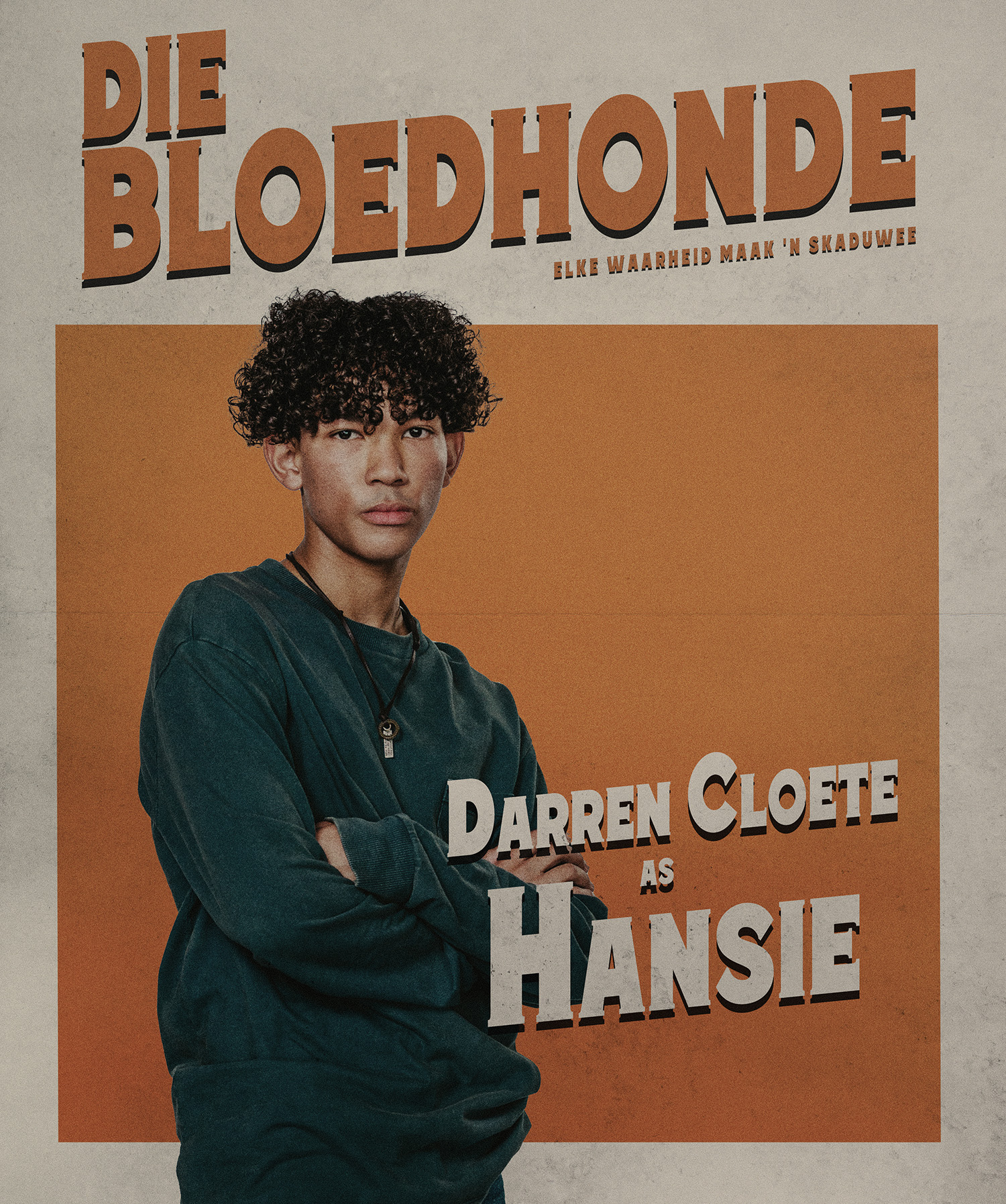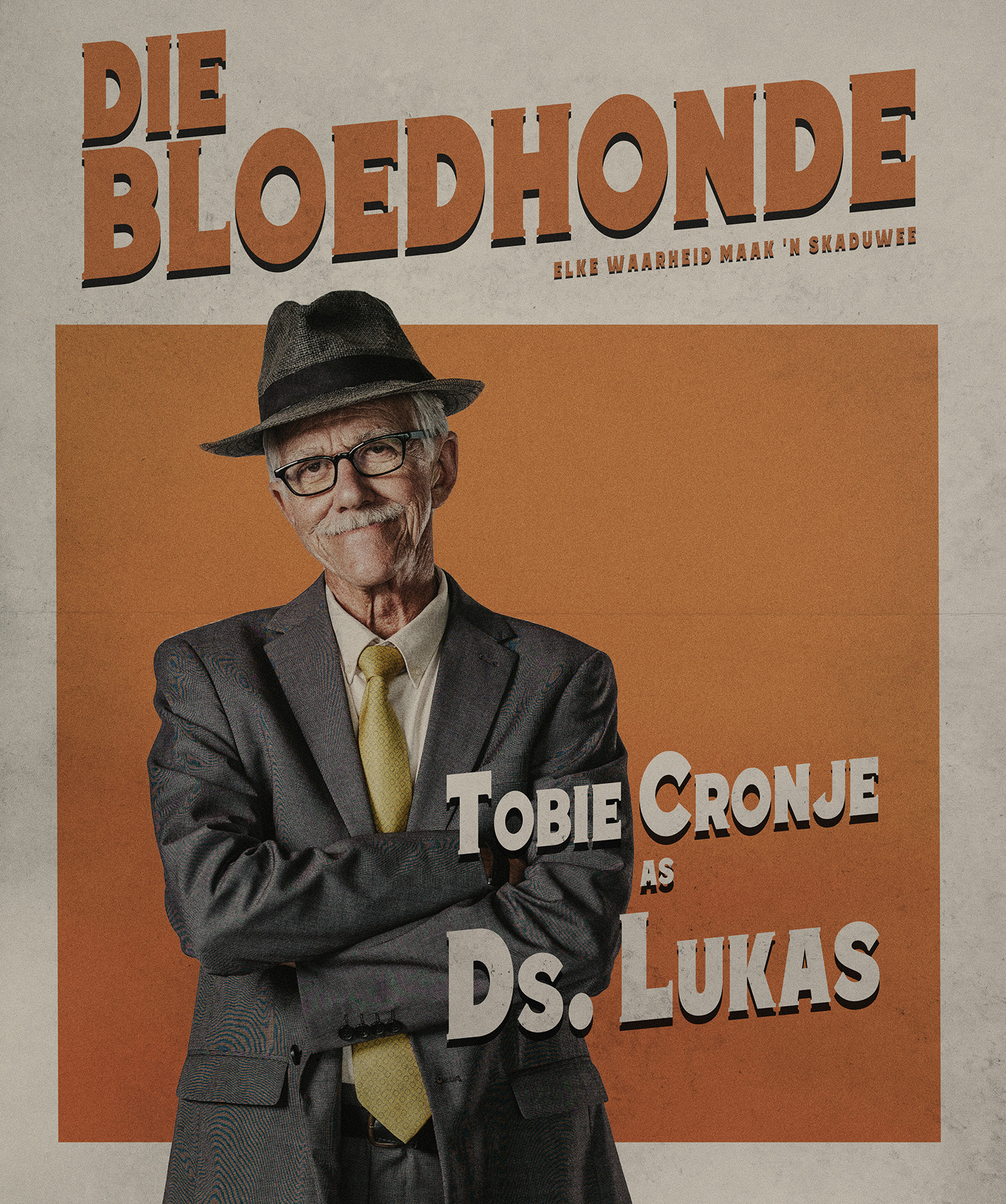



Feature film: Die bloedhonde
The versatile Safta winner Stiaan Smith has been on screen in popular Afrikaans movies such as Sy klink soos lente, Toorbos and Meisies wat fluit, and he was involved as a screenwriter in series like Hotel and Getroud met rugby. In the comedy drama Die bloedhonde he immersed himself behind the scenes as screenwriter and director, with a wonderful cast that includes Elani Dekker (Toorbos, Vaselinetjie), Waldemar Schultz (Die Byl, Wyfie), Tobie Cronjé (Pronk Primêr, Hans steek die Rubicon oor) and Anrich Herbst (Plan B, Egoli).
Die bloedhonde is the story of Katrien (Dekker) who smells a rat after a mysterious death in the holiday resort where she and her family are enjoying a break. Katrien’s initial prying develops into a full-scale investigation when she starts suspecting the popular local dominee of foul play. With a middle-aged vagabond (Schultz) as her only ally, Katrien pulls all stops to see that justice is done.
Stiaan Smith elaborated on the movie.
Will you tell us more about the film’s title?
Die bloedhonde was the title right from the start. Although the story is a character-driven coming-of-age tale, I liked the idea that it also leaned towards the riddle and action elements in the narrative. The idea of the bloodhound also suggests the presence of an obsessive diehard at work, which is linked to Katrien’s state of mind as she tackles this challenge to prove her family wrong.
Were there any movies or filmmakers who inspired your work on Die bloedhonde?
Greta Gerwig (Barbie, Little Women) has always inspired me with her ability to combine authentic characters and complex themes in a way that is both moving and popular. Her 2017 movie, Lady Bird, often was in the back of my mind.
The way Todd Phillips (War Dogs and The Hangover trilogy) talks about storytelling and directing, also meant a lot to me. His work on Joker was a sterling example of how creative one can be with character portraits.
Quentin Tarantino (Pulp Fiction, Reservoir Dogs) may sound like a cliche, but the boldness and passion that mark his storytelling, together with the ease and self-confidence in knowing when it is okay to break the rules, makes him a good example for any filmmaker.
Other character-driven films such as The Way Way Back, Little Miss Sunshine and Manchester by the Sea are also valuable sources of inspiration.
The cast is excellent. Please tell us more about the audition process and how you managed to assign the roles so successfully.
I agree, we were very fortunate with the cast.
It was sometimes difficult to make a selection, as we have no shortage of good actors. I believe one of the most important qualities of an actor is the willingness to be vulnerable, and this served as a good indicator during the audition process. But again, we were mostly blessed to be able to select from such a talented bunch.
Elani was also very generous with her time; the fact that we could have her in the room during many of the auditions for the other characters, made a huge difference.
Let us talk about the filming process. How long did it take and how many people were in your team? Were there any highlights that stand out?
The shooting was done in 18 days, and the team consisted of approximately 30 people … I am guessing wildly now!
A highlight that stands out was Elani singing in front of people for the first time in her life.
Also, I have never been on a set where rain was ‘made’ on the scale it was done for this film – what an experience! The time spent with Tobie Cronjé is a definite highlight. Of course, he is a darling of a human being and an actor, and I am deeply grateful for the opportunity to work with him.
What was the toughest challenge during filming and how did you overcome it?
We had to search far and wide for a precipice in the forest that overlooks a river. In the end we had to settle on a compromise with the help of VFX.
There were often learning opportunities of a more personal nature: Elani and I are engaged and best friends, and it is always a fun challenge to merge our personal relationship seamlessly with work. But, I believe, if you communicate openly and you keep your ego in check, it will always be a rewarding experience. We are grateful to report that, as a result of this experience, we are better off as individuals and as partners.
What do you hope will remain with viewers after seeing the movie?
Perhaps a tiny bit of sympathy for people who don’t share your beliefs.
How important is the Silwerskerm Festival for you as a South African filmmaker?
In the past, the Silwerskerm Festival has offered me plenty of opportunities, and if it wasn’t for the festival, I wouldn’t have enjoyed such wide exposure at the start of my career.
